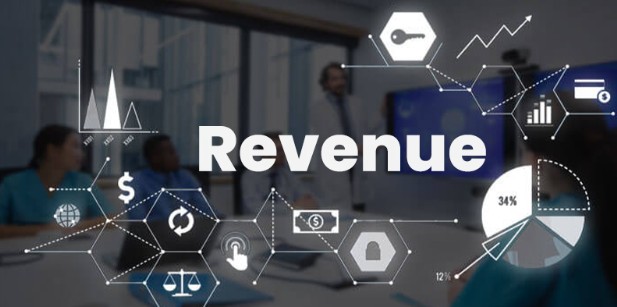In today’s rapidly evolving digital economy, businesses are increasingly turning to artificial intelligence (AI) to optimize operations, boost revenue, and enhance customer experiences. Among the most exciting advancements are AI agents for service revenue management and exploration. These intelligent systems are streamlining processes that were once tedious and error-prone, paving the way for more innovative and profitable business models.
To dive deeper into how these tools are transforming industries, learn more about AI agents for service revenue management and explore the capabilities of Zbrain XPLR, a platform pushing the boundaries of AI-driven discovery.
What Are AI Agents and Why Are They Essential?
AI agents are autonomous systems designed to make decisions, learn from data, and execute tasks without constant human intervention. They can analyze massive volumes of information in real-time, enabling faster and more accurate decision-making. In the context of service revenue management, AI agents are invaluable for predicting customer behavior, personalizing offers, optimizing pricing, and preventing revenue leakage.
These systems not only automate routine operations but also provide insights that help businesses adapt to market shifts, customer preferences, and competitive pressures. With AI agents at the helm, companies can move beyond reactive strategies and proactively shape their futures.
AI in Service Revenue Management: A Game Changer
Revenue management traditionally involved complex forecasting, manual data analysis, and a fair amount of guesswork. AI agents have completely changed the landscape by introducing predictive analytics, dynamic pricing models, and personalized service offerings.
Some critical ways AI agents for service revenue management are making a difference include:
- Predictive Customer Insights: AI can predict which customers are likely to churn, which ones will buy more services, and how price-sensitive different segments are.
- Dynamic Pricing: By analyzing demand patterns, competitive pricing, and historical sales data, AI agents can recommend optimal pricing strategies in real-time.
- Automated Billing and Collections: Intelligent systems detect billing errors, automate invoice generation, and manage payment reminders, minimizing human error and enhancing cash flow.
- Revenue Leakage Detection: AI identifies anomalies in revenue streams, helping companies plug leaks before they impact the bottom line.
With such capabilities, businesses not only improve revenue but also enhance customer satisfaction and loyalty by delivering more relevant services.
Zbrain XPLR: Leading the Way in Intelligent Exploration
While managing existing revenue streams is crucial, exploring new opportunities is equally important for sustained growth. This is where Zbrain XPLR steps in. It leverages the power of AI to enable businesses to explore uncharted territories efficiently and effectively.
Zbrain XPLR uses advanced algorithms and intelligent agents to uncover hidden patterns, emerging market trends, and potential new customer segments. It transforms raw data into actionable insights, enabling companies to make informed strategic decisions without the usual guesswork.
Key features of Zbrain XPLR include:
- Automated Data Discovery: AI-driven processes sift through vast datasets to highlight the most promising opportunities.
- Risk Analysis: Advanced modeling techniques assess the risks associated with new ventures, helping businesses make confident moves.
- Opportunity Mapping: AI agents identify new markets, potential partnerships, and innovative product ideas that align with a company’s strengths and market dynamics.
Through these functionalities, Zbrain XPLR empowers organizations to accelerate growth and outpace competitors in today’s volatile business landscape.
The Benefits of AI-Driven Service Revenue Management
The integration of AI agents into service revenue management delivers numerous benefits beyond simple automation:
- Increased Accuracy: Machine learning algorithms are better at detecting patterns and anomalies than human analysts, leading to more reliable forecasts and fewer costly mistakes.
- Scalability: AI agents can handle increasing volumes of data and complexity without a proportional increase in resource needs, making them ideal for growing businesses.
- Cost Savings: By automating routine tasks and optimizing pricing and billing, companies can significantly reduce operational costs.
- Improved Customer Experience: Personalized services based on AI-driven insights ensure that customers receive the right offer at the right time, improving satisfaction and loyalty.
Ultimately, businesses that deploy AI agents gain a competitive advantage that traditional approaches cannot match.
Challenges in Implementing AI Agents for Revenue Management
Despite the numerous advantages, implementing AI agents for service revenue management is not without its challenges. Organizations must consider:
- Data Quality: AI systems are only as good as the data they are fed. Poor quality or incomplete data can lead to inaccurate outputs.
- Integration Issues: AI platforms must seamlessly integrate with existing IT infrastructure, which can be complex and costly.
- Change Management: Employees may resist AI initiatives out of fear of job loss or distrust in new technologies. Effective communication and training are crucial.
- Ethical Concerns: AI systems must be transparent and fair, especially when dealing with customer data and decision-making processes.
By addressing these challenges thoughtfully, businesses can maximize the value of their AI investments.
The Future of AI in Service Revenue Management and Exploration
The future looks exceedingly bright for AI agents in service revenue management and exploration. We are already seeing AI systems move from reactive problem-solving to proactive opportunity creation. In the coming years, we can expect:
- More Sophisticated Personalization: Hyper-personalized service offerings that are uniquely tailored to each customer’s needs and behaviors.
- Real-Time Adaptability: AI systems that can instantly adjust strategies based on live market feedback.
- Greater Autonomy: AI agents that not only make decisions but also execute and monitor them with minimal human oversight.
- Cross-Industry Applications: Beyond traditional sectors like telecommunications and hospitality, AI-driven revenue management will permeate healthcare, education, and public services.
Businesses that embrace these trends today will be better positioned to lead tomorrow.
Conclusion
AI agents are redefining what’s possible in both service revenue management and strategic exploration. By integrating platforms like Zbrain’s AI agents for service revenue management and Zbrain XPLR, companies can unlock new efficiencies, create superior customer experiences, and drive sustainable growth.
In an increasingly competitive world, leveraging AI isn’t just an advantage—it’s becoming a necessity. Companies that move quickly to integrate these technologies will find themselves well ahead of the curve, equipped with the tools they need to thrive in the digital era.







